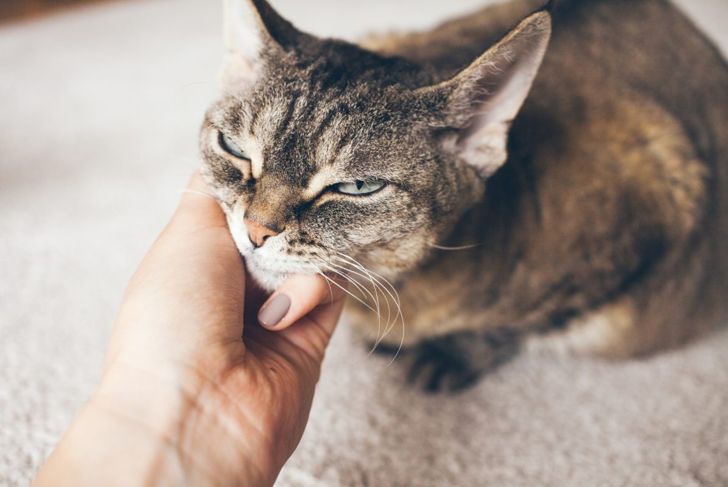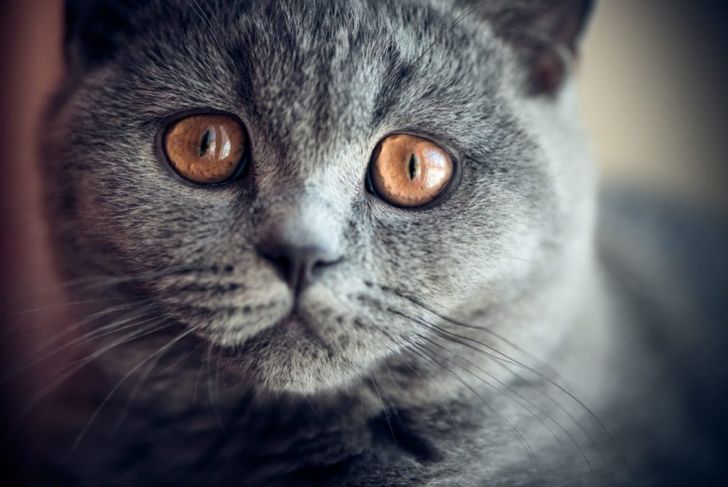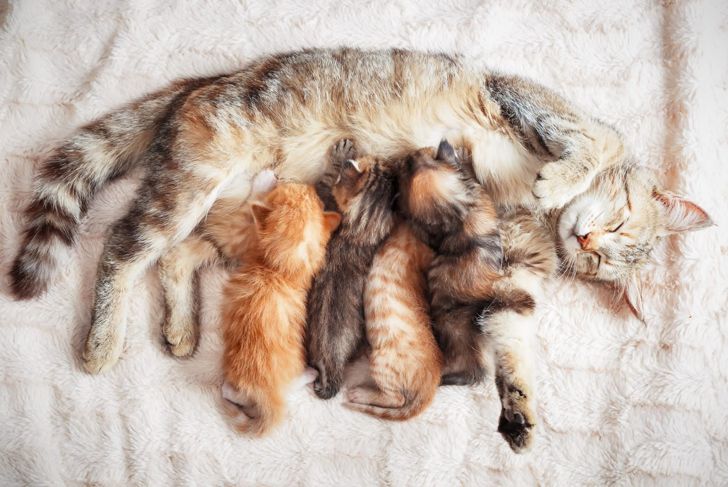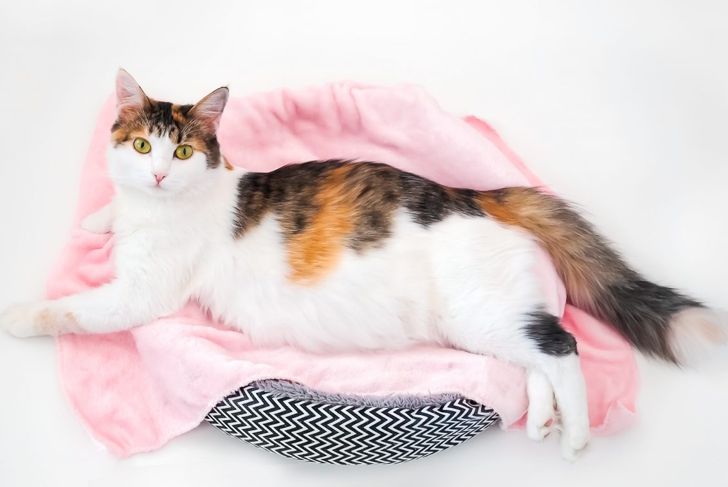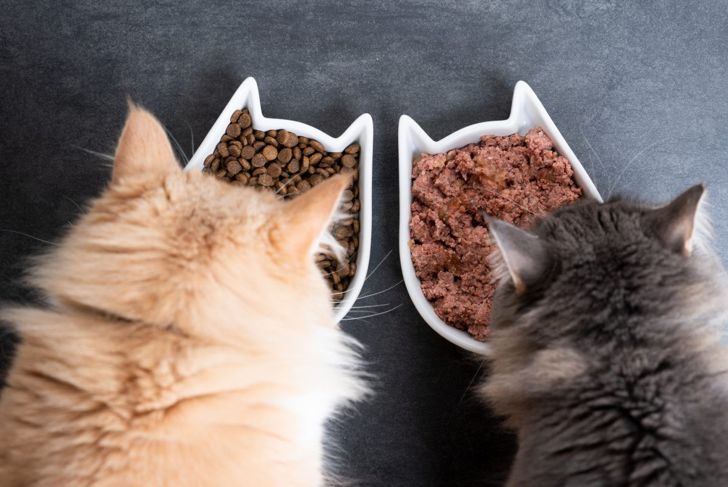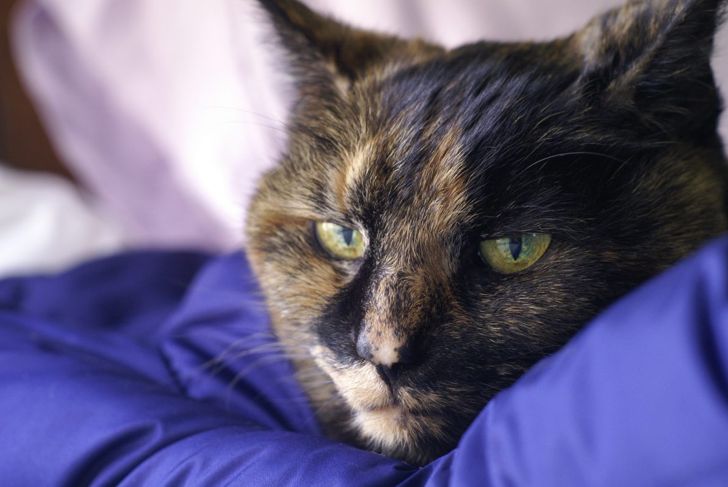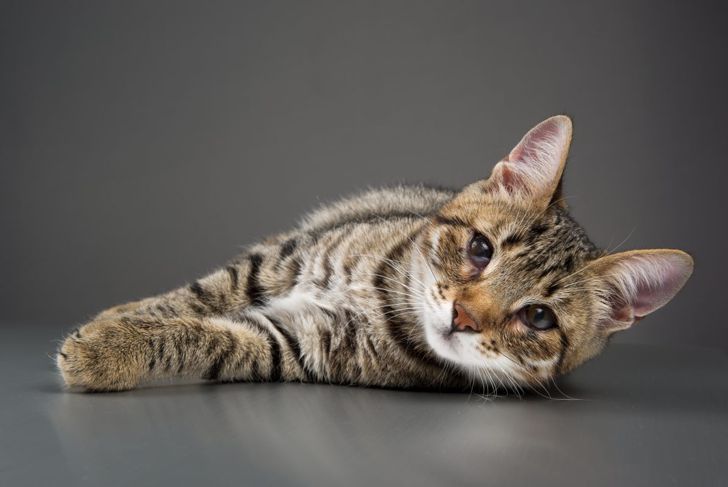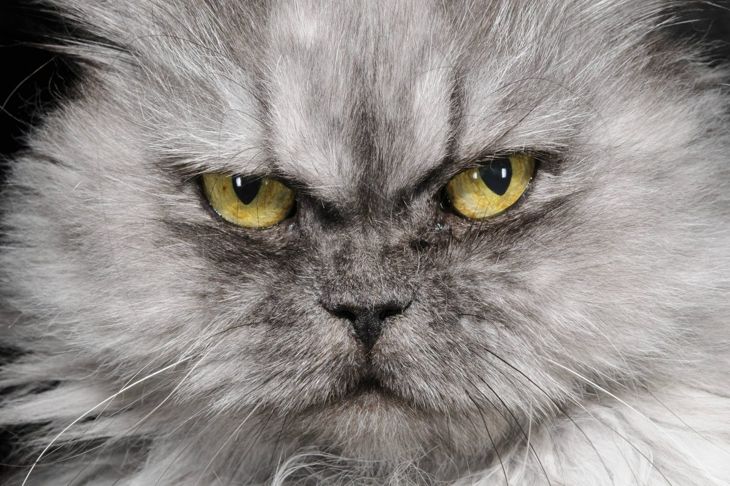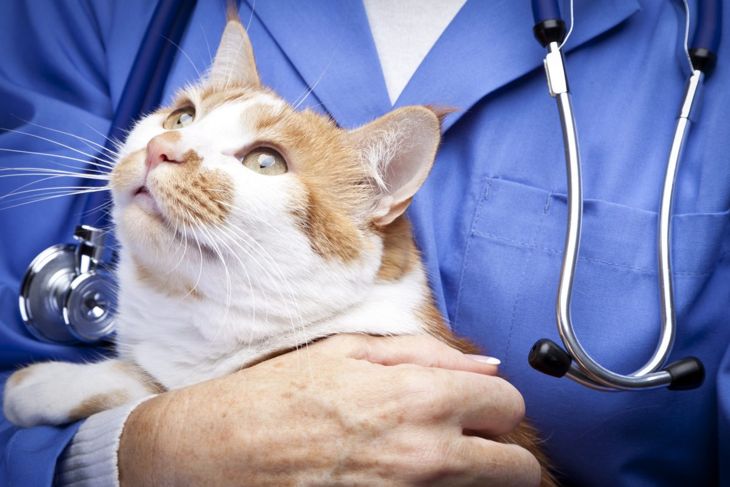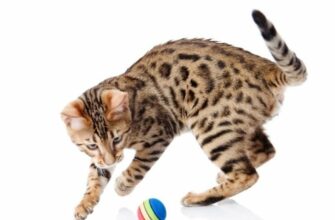If you’re a cat lover, you’ve probably come across online information from fellow feline enthusiasts about a cat that has Down syndrome. Many of these declarations base their conclusions on physical characteristics and specific symptoms they observe in their pet. These symptoms include clumsiness, vision and hearing problems, a flat nose and wide-set eyes, and small ears.While it’s true that on the surface, the issues may appear to be Down syndrome-like, cats aren’t born with this chromosomal rarity. However, other feline chromosomal imbalances cause similar symptoms. The good news is, cats can live happy, healthy lives despite these genetic mutations.
Down syndrome is a uniquely human syndrome
Cats have 19 pairs of chromosomes, while humans have 23 pairs. Each year, around 6000 children are born with a trisomy, a condition where an extra chromosome develops in the chromosome 21 pairing. This anomaly is called Down syndrome. Because cats only have 19 pairings, they can’t develop the trisomy in the chromosome 21 pairing. Cats exhibiting behaviors or unusual physical characteristics need an examination from a veterinarian who can run tests to identify any chromosomal abnormalities.
Neurological disorders and illnesses cause similar symptoms
There is a long list of reasons why your cat may look different than other cats or exhibit unusual movements. Cats that may seem extra clumsy may have a neurological disorder, and kittens born with feline distemper virus exhibit a lack of coordination. Inner and outer-ear infections can infect the feline brain without treatment, and symptoms of these infections include difficulty walking, along with head shaking. Cats may also develop a head tilt or swing their head from side to side and have difficulty standing. Anemia, malnutrition, and parasitic infections may lead to mental or physical abnormalities as well.
Down syndrome-like symptoms can be concerning
Cat lovers understand that every feline is unique, not only in their appearance but in their physical movements and behavioral patterns. Specific and unusual characteristics that stand out are often mistaken as signs of Down syndrome. In reality, they may be a symptom of a genetic condition or an illness. The most noticeable issues involve motor function. These problems stand out because cats are notoriously graceful and coordinated animals. But there are other signs that owners interpret as symptoms of Down syndrome.
- Abnormally wide-set eyes
- Hearing loss
- Upturned, flat or broad nose
- Poor muscle tone
- Oddly-shaped or small ears
- Heart problems
- Vision issues
Trisomy conditions are rare, but they occur in cats, too
While cats can't develop Down syndrome, they can be born with feline trisomy conditions. Klinefelter syndrome affects both male humans and male cats. Instead of having XY chromosomes, they have a third X chromosome that attaches to the pair causing an XXY instead. Sterility is a primary symptom of this condition, but other types of trisomy conditions cause changes in a cat’s physical appearance or their intellectual abilities. Behavioral issues, physical challenges, and a lack of motor skills are common. While trisomy conditions can decrease a cat’s life expectancy, with some love and patience, a feline can live a content, comfortable life with their human companions.
Cerebellar hypoplasia affects fine motor skills
If a pregnant cat becomes infected with feline panleukopenia virus, there is a risk of passing the illness on to her kittens. This can lead to cerebellar hypoplasia. Sometimes the condition affects the entire litter, but it may also infect only one. The virus attacks the cerebellum during its most crucial period of development. As a result, the kitten’s fine motor skills, coordination, and balance don’t develop properly. Jerky movements, goose-stepping, and tremors are common. Owners may also notice their kitten is having difficulty eating or drinking out of a bowl or playing with toys.
Malnutrition can lead to a long list of symptoms
Every living thing requires sustenance to thrive. Because cats are obligate carnivores, they require nutrients found only in animal products. Malnutrition occurs when the cat isn’t getting enough food or is eating the wrong type of food. Poor coordination, failing eyesight, muscular weakness, fatigue, flatulence, and scaly skin are physical signs that the cat isn’t getting the nutrition it needs.
Symptoms may be due to anemia
When a cat is anemic, they are unable to produce a sufficient supply of red blood cells. Many different types of infections can cause the problem, but there are also hereditary blood disorders that do as well. Around 3% of cats in the U.S. contract feline leukemia virus infection (FeLV) and anemia. Infection rates are higher for cats that are in poor health. Cats suffering from anemia can experience weakness, loss of energy, loss of appetite, increased heart rates, and heart murmurs.
Droopy eyes could indicate feline dysautonomia
Some cats are born with droopy eyes, and owners may interpret this as a sign of Down syndrome. If the cat also has urinary and gastrointestinal issues, it could be a rare condition called feline dysautonomia or Key-Gaskell syndrome. Younger cats contract the disease more so than older ones. It occurs when the parts of the nervous system that control involuntary bodily functions fail. The bowels, bladder, and esophagus distend. Diarrhea, dry oral mucous membranes, and upper respiratory issues are additional symptoms. The cat’s third eyelid may protrude and their pupils may be unresponsive, leading to the droopy eye appearance. Veterinarians can treat symptoms, although there is no cure.
Age-related disorders may be mistaken for Down syndrome
Cognitive dysfunction mimics many of the symptoms that owners describe when they describe their Down syndrome cat. Sometimes, the issue stems from a neurological disorder, but many are age-related that start once the cat reaches 10 years of age. Bizarre behaviors like changing sleep cycles and loud vocalizing in the middle of the night are examples. Symptoms also resemble dementia or Alzheimer’s. Spatial disorientation, a disinterest in food or water, or staring blankly at walls or into space are common. Health issues such as arthritis, kidney failure, hypertension, or progressive periodontal disease can also cause similar symptoms.
Genetic testing is the best place to start
Just because a cat looks different physically doesn’t mean they are unhealthy. While some cats who exhibit Down syndrome-like symptoms have no difficulties, their issues can become more pronounced as they age. If the cat is having complications with motor skill and muscle movement, the cat’s balance will likely worsen at some point. Genetic testing not only identifies a cause but allows your veterinarian to create an effective long-term treatment plan.

 Home
Home Health
Health Diet & Nutrition
Diet & Nutrition Living Well
Living Well More
More
